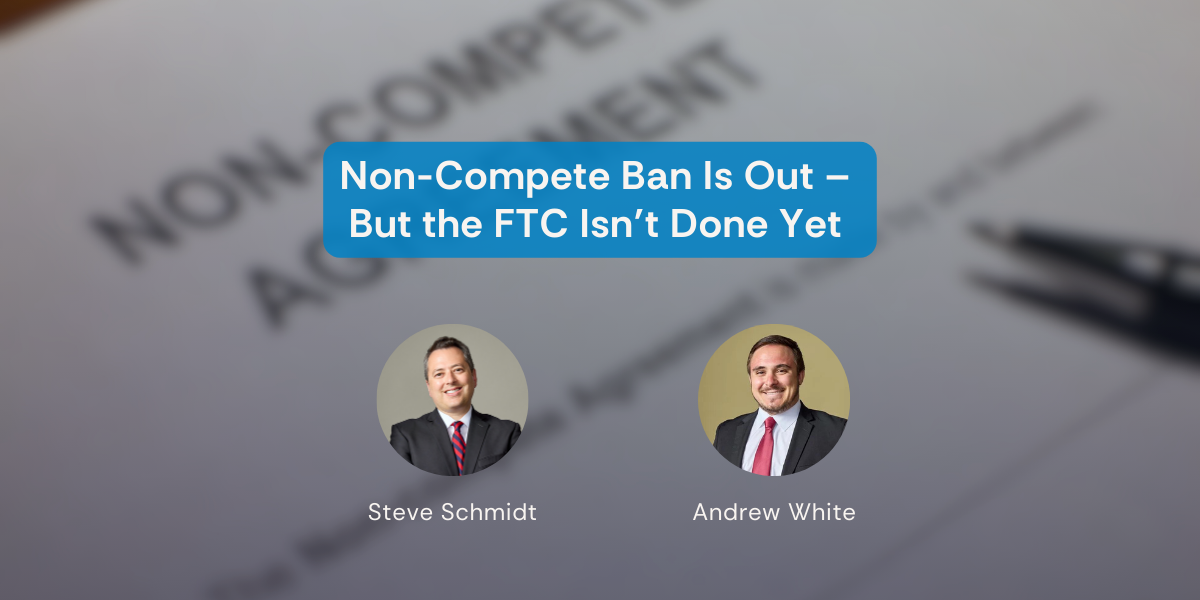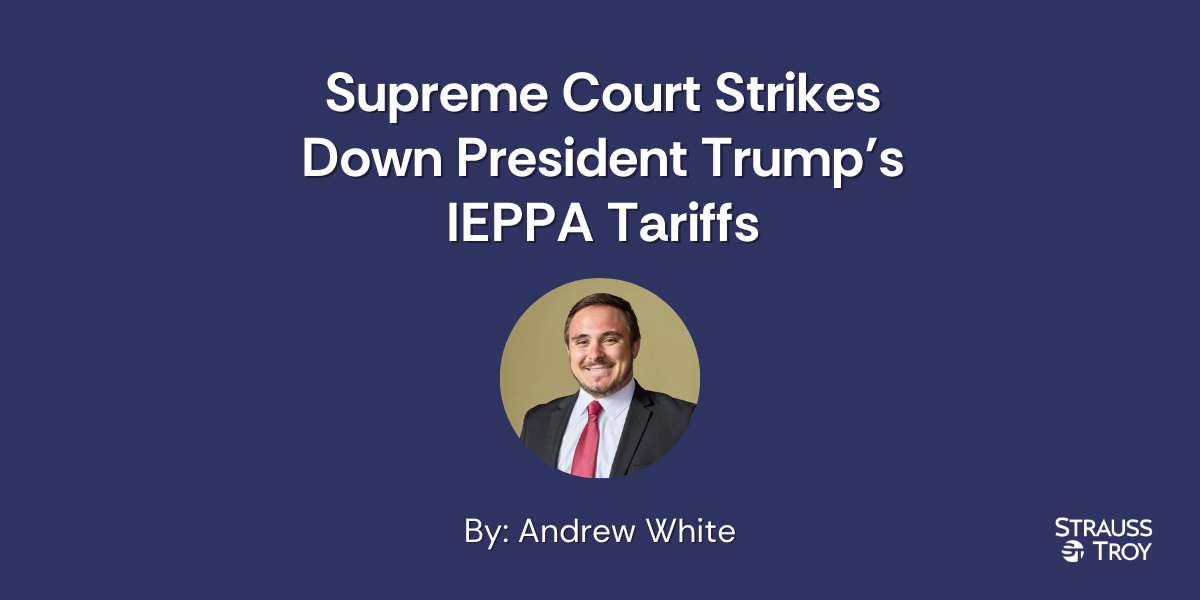Non-Compete Ban Is Out – But the FTC Isn’t Done Yet

This is the latest article from Strauss Troy in a series on the Federal Trade Commission’s (the “FTC”) recent actions and rule on post-employment non-competition agreements. If you missed any of our other articles in this series, please visit our website.
On September 5, 2025, the FTC announced a change in its strategy for dealing with post-employment non-competition agreements. Under the Biden administration, the FTC had enacted a rule that would have invalidated tens of millions of existing non-compete agreements and precluded almost all new ones (the “Non-Compete Rule”). This rule was met with several challenges in federal courts across the country. However, the FTC recently voted 3-1 to dismiss its appeals in Ryan, LLC v. FTC, No. 24-10951 (5th Cir.), and Properties of the Villages v. FTC, No. 24-13102 (11th Cir.), and to submit to the Northern District of Texas’s order vacating the non-compete ban, thus effectively abandoning all enforcement efforts of the Non-Compete Rule.
While ultimately voting to abandon the Non-Compete Rule, the FTC has emphasized that it remains concerned with the anticompetitive effects of non-compete agreements, but that it intends to shift its focus to investigating and litigating instances of misuse on a case-by-case basis. For instance, just one day before announcing its decision to abandon the Non-Compete Rule, the FTC filed a complaint against Gateway Services, Inc., the nation’s largest pet cremation business, alleging that Gateway’s broad and indiscriminate use of non-compete agreements against all employees, regardless of their position or responsibilities, violated the FTC Act.
Moreover, just six days after the Gateway complaint, the FTC sent warning letters to several large healthcare employers and staffing firms urging these companies to “conduct a comprehensive review of their employment agreements – including any non-competes or other restrictive covenants – to ensure they are appropriately tailored and comply with the law.” Recipients of these letters were advised that they had not necessarily violated the law, but the recipients were encouraged to engage in a review of their employment contracts to ensure compliance with the FTC Act’s prohibitions on anti-competitive practices.
Thus, while the FTC may have abandoned the Non-Compete Rule, it is still important for employers to be mindful of its uses of non-compete agreements. Employers should ensure that they avoid requiring all employees to sign identical non-compete agreements regardless of their position or responsibilities, that any non-compete agreement is limited in both geographic scope and duration, and that non-compete agreements are being used to protect legitimate business interests such as trade secrets, confidential information, or investments in specialized training given to specific employees.
Being proactive and working with counsel to review your business’s non-compete usage can help ensure legitimate interests are protected without running into scrutiny from the FTC or other authorities. This also means looking at a variety of restrictive covenant options holistically to assess best protection strategies. Our team at Strauss Troy is ready and able to assist your business in reviewing your business’s non-compete agreements and other restrictive covenants to ensure compliance with applicable laws and answer any other questions or concerns you may have.
Stephen S. Schmidt: ssschmidt@strausstroy.com or 513.629.9422
Andrew D. White: adwhite@strausstroy.com or 513.629.9466


.png)
